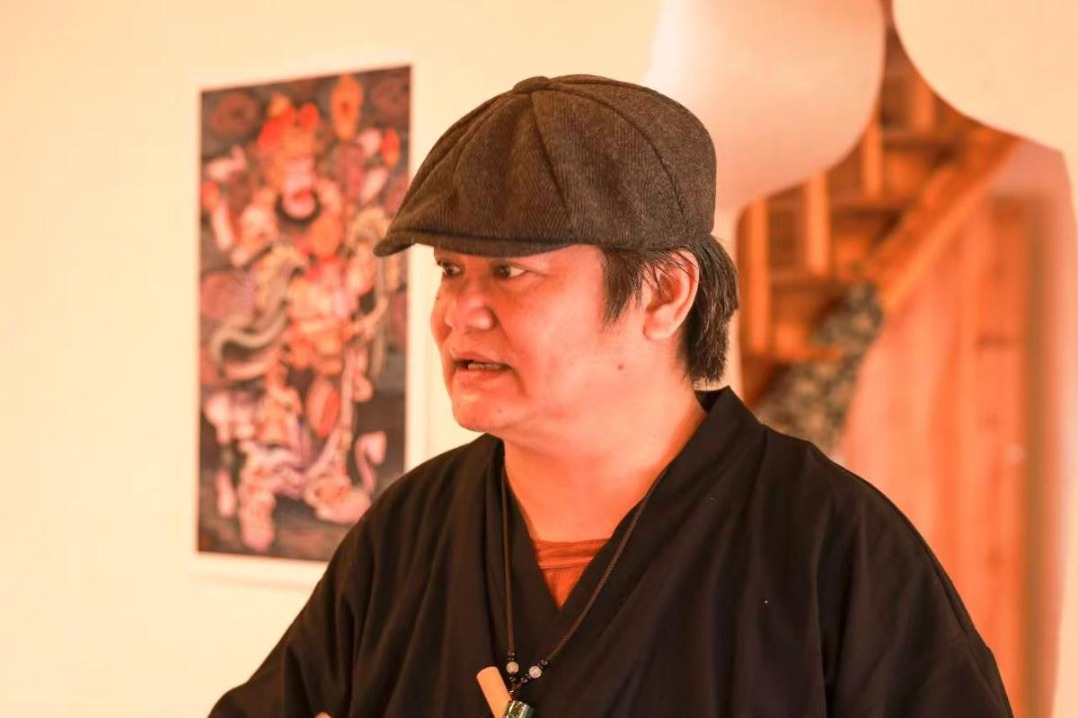Cyrillic Mongolian editions of Xi's books released in Mongolia

ULAN BATOR -- The launch ceremony of the Cyrillic Mongolian editions of the second volume of "Xi Jinping: The Governance of China" and "Xi Jinping's Excerpts on Poverty Alleviation," along with a seminar on governance in China and Mongolia, was held in Ulan Bator, the capital of Mongolia, on Monday.
During the launch ceremony, guests from China and Mongolia jointly unveiled the Cyrillic Mongolian editions of the two books. This was followed by a seminar on state governance, where experts and scholars from both nations exchanged insights and experiences on governance practices in China and Mongolia.
Participants expressed the belief that on the occasion of the 75th anniversary of the establishment of diplomatic relations between China and Mongolia and the 10th anniversary of the establishment of the China-Mongolia comprehensive strategic partnership, it is of great significance for China and Mongolia to strengthen the exchange of experience in governance and poverty alleviation and jointly explore the modernization path with their own characteristics, deepen the friendship and mutual trust between China and Mongolia, integrate interests, and promote the building of a community with a shared future for the two countries.
The organizers of the event said that "Xi Jinping: The Governance of China" reflects the development context and main content of Xi Jinping Thought on Socialism with Chinese Characteristics for a New Era, and is an authoritative work for the international community to understand contemporary China. Meanwhile, "Xi Jinping's Excerpts on Poverty Alleviation" systematically expounds on the guiding philosophy and great practice of China's poverty alleviation, and contributes the Chinese solution to global poverty governance.
The publication of the Cyrillic Mongolian version of the two important works is expected to help the Mongolian people better understand China, and open a new chapter for the traditional friendship and mutual learning of civilizations between China and Mongolia.
Khurelbaatar Bulgantuya, deputy chairman of Mongolia's State Great Hural (Parliament), said during the ceremony that, under President Xi Jinping's leadership, China is striving to comprehensively build a modern socialist country after achieving a moderately prosperous society. She noted that Mongolia admires these efforts. "Over the past 40 years, China has made significant contributions to global poverty reduction. These two works provide valuable references for countries around the world by sharing China's successful experiences," she said.
Shen Minjuan, Chinese ambassador to Mongolia, emphasized that China and Mongolia share similar development goals and interconnected futures. Shen expressed the hope that the Chinese solutions and wisdom contained in the two books would inspire Mongolia, boost motivation, and enhance confidence in achieving greater development while deepening bilateral cooperation across various fields.
Adiyasuren Davaajargal, state secretary of Mongolia's Ministry of Culture, Sports, Tourism, and Youth, noted that cooperation between Mongolia and China has grown increasingly close in recent years, yielding remarkable results. He added that Xi's works serve as a vital bridge for deepening the exchange of governance experiences between the two countries.
The second volume of "Xi Jinping: The Governance of China" was translated and published in Cyrillic Mongolian by the Foreign Languages Press in collaboration with Mongolia's Admon Publishing House.
To date, "Xi Jinping: The Governance of China" has been translated into 42 languages, while "Xi Jinping's Excerpts on Poverty Alleviation" has been made available in English, French, Spanish, Russian, Arabic, and other languages. Cyrillic Mongolian is the first language in which this book has been translated and published through international collaboration.
The events, co-organized by the Chinese State Council Information Office, the Ministry of Foreign Affairs of Mongolia, the China International Publishing Group and the Chinese Embassy in Mongolia, were attended by more than 300 representatives from political parties, media outlets and think tanks from both countries, and diplomatic missions in Mongolia.





































